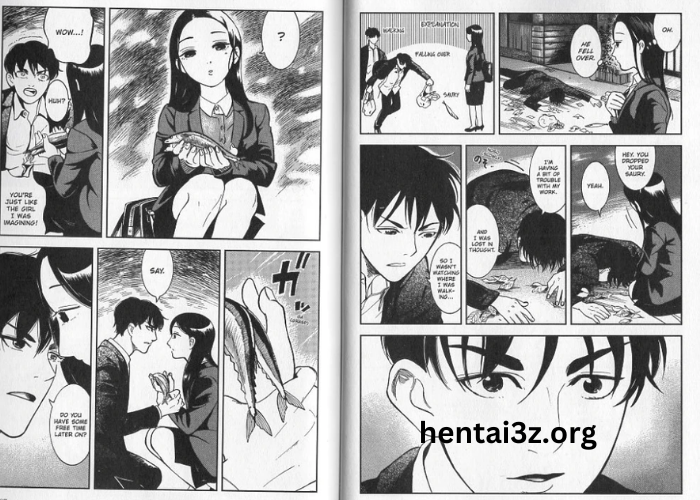Writing is an art that requires clarity, originality, and engagement. One of the common pitfalls that writers face is the overuse of certain expressions. These phrases, often clichés, can make your writing feel stale, predictable, and less impactful. Whether you’re crafting an essay, a blog post, or a business report, avoiding overused expressions can significantly enhance the quality of your work. This article will explore ten overused expressions that you should avoid in your writing, along with tips on how to replace them with more effective alternatives.
“Think Outside the Box”
The phrase “think outside the box” is intended to encourage creativity and unconventional thinking. However, it has become so overused that it often loses its intended impact. Instead of using this tired expression, consider saying something more specific like “explore new perspectives” or “approach the problem from a different angle.” These alternatives provide the same message but with a fresher and more precise tone.
“At the End of the Day”
“At the end of the day” is commonly used to summarize a point or to emphasize a conclusion. However, its frequent usage has rendered it almost meaningless. Instead, you can use phrases like “ultimately,” “in conclusion,” or “when all is said and done.” These alternatives are more direct and carry the same meaning without the redundancy.
“The Grass Is Always Greener on the Other Side”
This phrase is often used to express the idea that people tend to think others have it better than they do. However, it’s become so cliché that it can weaken your message. A more original way to convey this idea might be “we often envy what we don’t have” or “people tend to idealize what they lack.” These expressions are less clichéd and more thought-provoking.
“In This Day and Age”
The phrase “in this day and age” is typically used to emphasize the modern context of a discussion. However, it’s redundant since “this day” and “this age” both refer to the present time. Instead, simply use “today,” “nowadays,” or “currently.” These alternatives are more concise and avoid unnecessary repetition.
“Better Late Than Never”
“Better late than never” is a phrase often used to justify tardiness or delay. While it serves a purpose, it has been overused to the point of losing its impact. A more original way to express this sentiment could be “delayed action is better than inaction” or “it’s important to start, even if late.” These alternatives convey the same idea but with a fresher approach.
“All in All”
“All in all” is used to summarize or conclude a discussion. However, its overuse has made it feel like a filler rather than a meaningful expression. Alternatives like “overall,” “in summary,” or “to sum up” are more direct and effective in wrapping up your point.
“Hit the Nail on the Head”
This phrase is used to describe someone who has precisely identified a problem or made an accurate statement. However, it’s often overused in both casual and formal writing. Instead, consider saying “made an accurate point” or “identified the issue perfectly.” These alternatives convey the same meaning without relying on a tired cliché.
“Light at the End of the Tunnel”
The phrase “light at the end of the tunnel” is used to signify hope or the end of a difficult period. While it’s a powerful metaphor, its overuse has diluted its effect. Instead, you could say “hope on the horizon” or “the end is in sight.” These expressions maintain the metaphorical nature of the phrase while offering a fresher perspective.
“Take It with a Grain of Salt”
“Take it with a grain of salt” is commonly used to advise caution or skepticism about a particular statement. However, it has become so ubiquitous that it can feel like a default response rather than a thoughtful one. Instead, try “approach with caution” or “consider it critically.” These alternatives are more straightforward and avoid the overused metaphor.
“Think About It”
The phrase “think about it” is often used to prompt reflection or consideration. However, it has become so common that it can feel redundant and unnecessary. Instead, encourage deeper reflection by saying “consider this carefully” or “reflect on this.” These alternatives are more specific and encourage a more thoughtful response.
The Impact of Overused Expressions on Writing
Overused expressions can significantly diminish the quality of your writing. They make your work feel repetitive, unoriginal, and less engaging. Readers may find themselves skimming over clichés without really processing the message you’re trying to convey. By avoiding these tired phrases, you can create writing that is more dynamic, impactful, and memorable.
How to Identify Overused Expressions in Your Writing
One of the best ways to identify overused expressions in your writing is to read your work aloud. Hearing your words can help you spot phrases that sound tired or redundant. Another effective technique is to take a break from your writing and return to it with fresh eyes. This can help you see your work from a new perspective and identify areas that need improvement.
Alternatives to Clichés: Finding Your Unique Voice
Instead of relying on clichés, strive to develop your unique voice in writing. This involves using original language, vivid imagery, and specific details that reflect your perspective. Don’t be afraid to experiment with different ways of expressing your ideas. The more you practice, the more naturally your unique voice will emerge.
The Role of Editing in Eliminating Overused Expressions
Editing is a crucial step in the writing process, especially when it comes to eliminating overused expressions. During the editing phase, focus on identifying and replacing clichés with more original language. Consider using a thesaurus or brainstorming alternative ways to express your ideas. Effective editing can transform your writing from cliché-ridden to fresh and engaging.
The Importance of Clarity and Precision in Writing
Clarity and precision are essential elements of good writing. Overused expressions often detract from clarity by introducing vague or redundant language. Instead, aim to use clear, precise language that accurately conveys your message. This not only improves the readability of your work but also makes your writing more persuasive and impactful.
Conclusion
Avoiding overused expressions in your writing is key to creating content that is engaging, original, and effective. By steering clear of clichés and opting for fresh, precise language, you can elevate the quality of your work and better connect with your readers. Whether you’re writing for an audience of one or thousands, the effort to avoid these common pitfalls will pay off in the form of clearer, more compelling communication.



